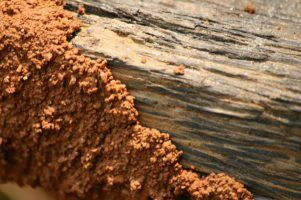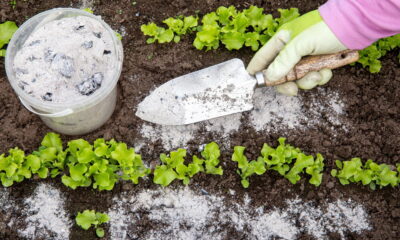

Environment
Safe and Environmentally Friendly Termite Control Methods
Termites, also called white ants in some parts of the world, are pretty amazing creatures. They play an essential role in the cycle of nature by helping clear the forests of dead trees.
As they chew away at the rotting wood, they develop pathways for fungi and bacteria to grow inside the log, which helps the wood to decompose even faster. As deceased trees disappear, the forest gets cleared for new, healthy life and the soil enriched for further activity.
The ecosystem would have trouble working effectively without the presence of these tiny, ostensibly destructive insects.
But when you discover you have a termite problem in your home, the walls could come tumbling down around you — perhaps even literally! Termites can’t tell the difference between a dead tree in the forest and the dead wood in your house.
This is frustrating, but it’s nature working to do what it’s meant to do. Still, natural or not, you can’t let termites destroy your home.
The obvious solution is to call an exterminator, but they often come with chemicals that can poison your air and pollute the atmosphere. When you’re doing your best to reduce your carbon footprint and let nature flourish around you, the last thing you want is to allow such harmful substances into your home.
Rather than rely on powerful chemicals, why not try some natural and safe remedies? Check these out.
Botanicals
This refers to a selection of extracts that come from plants. Orange oil is one botanical that has proved effective at extinguishing termites in the past. The natural oil contains the active compound d-limonene, which immediately kills termites on contact. It’s most effective for drywood termite colonies.
Neem oil is another essential ingredient that works well. It is an extract from the Asian neem tree, but unlike orange oil, simply touching the oil won’t kill the insects; they must ingest it. Since termites eat wood, this shouldn’t be too much of a problem if you catch the problem early on. You’ll likely need repeated applications of the product to see success.
Borates
Also known as borax, this treatment is a mixture of salt and the element boron. It usually comes in powdered form that can either be mixed with water and painted on surfaces, or sprinkled on the affected areas for potency.
Depending on the dilution, termites will die either when they come in contact with the substance or when they eat it. The problem with this solution is that it’s hard to make sure the treatment spreads to every area of the colony. Diluting sodium borate with water will reduce the potency, but will ensure it spreads farther.
Heat and Cold Treatments
Extreme hot and cold temperatures will kill the insects. When you’re using hot air to kill termites, the temperature must reach between 120 and 140 degrees Fahrenheit inside a sealed structure, and it requires about 35 minutes for it to work. The same can be done with the extremely cold temperature of 15 degrees Fahrenheit or lower for several days.
If you attempt either of these procedures, remember a couple of essential considerations. First, such extreme temperatures can damage furniture, spoil food, and even break glass (though your windows should be fine). It’s smart to move food and furniture out of the house before resorting to this kind of treatment.
In addition, you’ll see the best results if you tent the entire house first. That way, the heat or cold can be centered on the structure and won’t escape and waste energy.
In many cases, using natural methods to treat termites will work best with a mixture of all three of the above treatments. Termites come in the thousands, and they multiply quickly. It’s also difficult to achieve the result you want quickly.
It’s quicker and less arduous to hire an exterminator who applies gaseous chemicals to fight an infestation, but if you’re looking for an eco-friendly and economic solution, these natural treatments can do the job with time.


 Environment12 months ago
Environment12 months agoAre Polymer Banknotes: an Eco-Friendly Trend or a Groundswell?

 Features11 months ago
Features11 months agoEco-Friendly Cryptocurrencies: Sustainable Investment Choices

 Features12 months ago
Features12 months agoEco-Friendly Crypto Traders Must Find the Right Exchange

 Energy11 months ago
Energy11 months agoThe Growing Role of Solar Panels in Ireland’s Energy Future





























